 Hearing is one of those things that many people take for granted … until it’s gone.
Hearing is one of those things that many people take for granted … until it’s gone.
A Chronic Condition
Hearing loss is the third most common chronic physical condition in American adults – following hypertension and arthritis. Hearing loss is even more common than vision trouble.
Approximately 11% of US workers have hearing difficulty, and about 24% of that hearing difficulty is caused by occupational exposures according to the National Institute for Occupational Safety and Health (NIOSH).
Hearing loss can also lead to miscommunication and accidents, potentially harming employees while driving up workers compensation insurance costs.
20 Million in Workforce Affected
There are more than 20 million people in the U.S. workforce currently experiencing hearing loss, and it’s affecting their jobs and costing businesses money. Any worker can suffer work-related hearing loss, but the top industries include construction, carpentry, mining, entertainment, military, and agricultural according to Healthy Hearing.
Impact of Hearing Loss
According to the CDC, Hearing loss can lead to miscommunications and depression. It has also been associated with cognitive decline and heart problems. Hearing loss can affect safety within the workplace, and the Better Hearing Institute found that workers with hearing loss are five times more likely to take sick days due to severe stress.
Epic Hearing Healthcare says, “… when workers have trouble following conversations, misunderstand what is being said, or pretend to hear things that they don’t hear, it can negatively affect the worker’s productivity and the company’s bottom line. Untreated hearing loss affects companies – whether through lost productivity or increased healthcare costs.”
Causes of Hearing Loss
The causes of hearing loss in the workplace include loud noises and chemicals that cause damage to the inner ear (ototoxic chemicals). When sound reaches 85 decibels or higher or if a person needs to raise their voice to speak to someone who is three feet away, noise is considered potentially harmful. Ototoxic chemicals include organic solvents like trichloroethylene, heavy metals like mercury and lead, and asphyxiants like carbon monoxide.
Approximately 30 million U.S. workers are exposed to dangerous noise levels or ototoxic chemicals.
How To Prevent or Minimize Hearing Loss
The good news is that much of this hearing loss is preventable. NIOSH has created a hierarchy of controls:
- Prevent or contain the escape of the hazardous workplace agent at its source (engineering control),
- control exposure by relocating the worker to a safe area (administrative controls),
- and control the exposure with barriers between the worker and the hazard (personal protective equipment).
Here are a few simple steps recommended by the CDC to reduce your employees’ risk for hearing loss:
- Use quieter equipment and keep equipment well maintained and lubricated.
- Put a barrier between employee and the source or enclose the source completely
- Increase distance between employee and source
- Reduce employee’s time in noisy areas
- Provide and enforce the use of hearing protection in noisy areas.
- Educate your employees about noise hazards
Here are tips to reduce hearing loss due to exposure to ototoxic chemicals:
- Use a less-toxic or non-toxic chemical
- Provide and enforce the use of gloves, eye protection, respirator and other protective equipment as appropriate.
- Follow all chemical safety instructions.
Hearing Loss Prevention Program Benefits
According to the CDC, “A successful hearing loss prevention program benefits both the company and the affected employee. Employees are spared disabling hearing impairments, and evidence suggests that they may experience less fatigue and generally better health. Ultimately, the company benefits from reduced medical expenses and worker compensation costs. In some cases, there may be improved morale and work efficiency.”
Contact Us For Advice on Reducing Workers Compensation Insurance Costs
To learn more about workplace safety and ways to save on workers compensation insurance costs, give American Insuring Group a call at (800) 947-1270 or (610) 775-3848 or Contact Us Online. We specialize in workers comp insurance for employers in Pennsylvania, Delaware and New Jersey.
Our independent agents will shop and compare competing insurers to find a policy that meets your needs at the best price possible. Contact us today to learn more!



 Some companies believe that taking the time to develop a return-to-work (RTW) program for injured employees costs more than its worth.
Some companies believe that taking the time to develop a return-to-work (RTW) program for injured employees costs more than its worth.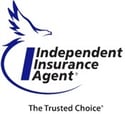 American Insuring Group can assist you in creating an effective return-to-work program that works for you and your employees.
American Insuring Group can assist you in creating an effective return-to-work program that works for you and your employees. You have a great deal of power behind the wheel of a tractor-trailer. It's your responsibility to drive safely. As a bonus, if you do, then you'll also enjoy lower truck insurance costs.
You have a great deal of power behind the wheel of a tractor-trailer. It's your responsibility to drive safely. As a bonus, if you do, then you'll also enjoy lower truck insurance costs. You’ve worked hard perfecting your recipes, hiring the right people, finding the perfect location, and creating a successful business.
You’ve worked hard perfecting your recipes, hiring the right people, finding the perfect location, and creating a successful business. Contractors and handymen, do you remember the days before nail guns? When you had to use a hammer to nail something.
Contractors and handymen, do you remember the days before nail guns? When you had to use a hammer to nail something.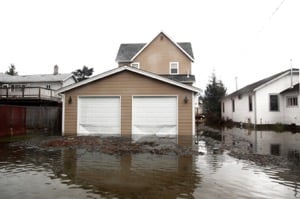 We’ve all seen the devastation Hurricane Harvey has caused in Houston. People being rescued by boat. People without power or safe drinking water. Homes that were flooded or completely destroyed. It is heartbreaking. And so many without a flood insurance as opposed to a standard
We’ve all seen the devastation Hurricane Harvey has caused in Houston. People being rescued by boat. People without power or safe drinking water. Homes that were flooded or completely destroyed. It is heartbreaking. And so many without a flood insurance as opposed to a standard  More people are getting into the food truck business than ever before. Food trucks offer a more affordable and flexible option for first-time entrepreneurs. Plus, many restaurateurs are adding food trucks to increase brand awareness and to cash in on the current growth of the food truck industry.
More people are getting into the food truck business than ever before. Food trucks offer a more affordable and flexible option for first-time entrepreneurs. Plus, many restaurateurs are adding food trucks to increase brand awareness and to cash in on the current growth of the food truck industry.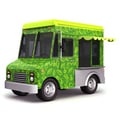 It may sound complicated and perhaps a bit overwhelming, but the independent agents at American Insuring Group can walk you through your options and help you determine the best food truck insurance for your operation.
It may sound complicated and perhaps a bit overwhelming, but the independent agents at American Insuring Group can walk you through your options and help you determine the best food truck insurance for your operation.  Trust… What is trust? Merriam Webster defines it as “one in which confidence is placed” or “assured reliance on the character, ability, strength, or truth of someone or something.”
Trust… What is trust? Merriam Webster defines it as “one in which confidence is placed” or “assured reliance on the character, ability, strength, or truth of someone or something.”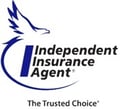 To learn more about saving on workers compensation insurance,
To learn more about saving on workers compensation insurance, 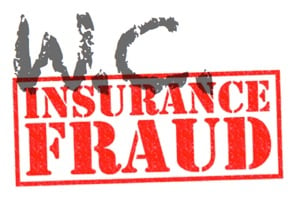 The majority of workers’ compensation insurance claims are legitimate, and if an employee is injured on the job, they are entitled to the medical care and indemnity benefits stated in the workers’ compensation statutes. Unfortunately, there are also a number of fraudulent workers’ compensation claims every year.
The majority of workers’ compensation insurance claims are legitimate, and if an employee is injured on the job, they are entitled to the medical care and indemnity benefits stated in the workers’ compensation statutes. Unfortunately, there are also a number of fraudulent workers’ compensation claims every year. To learn more about protecting your company against WC insurance fraud or your
To learn more about protecting your company against WC insurance fraud or your  If you own a construction company, the chances are good that you subcontract some or all of the work to another party. You can (and should) do your due diligence to ensure that any subcontractor you hire has a reputation for doing a good job safely. However, it’s impossible to foresee all of the potential financial and operational risks that may arise with a project, particularly with a third-party.
If you own a construction company, the chances are good that you subcontract some or all of the work to another party. You can (and should) do your due diligence to ensure that any subcontractor you hire has a reputation for doing a good job safely. However, it’s impossible to foresee all of the potential financial and operational risks that may arise with a project, particularly with a third-party.  To learn more about protecting your business,
To learn more about protecting your business, 



